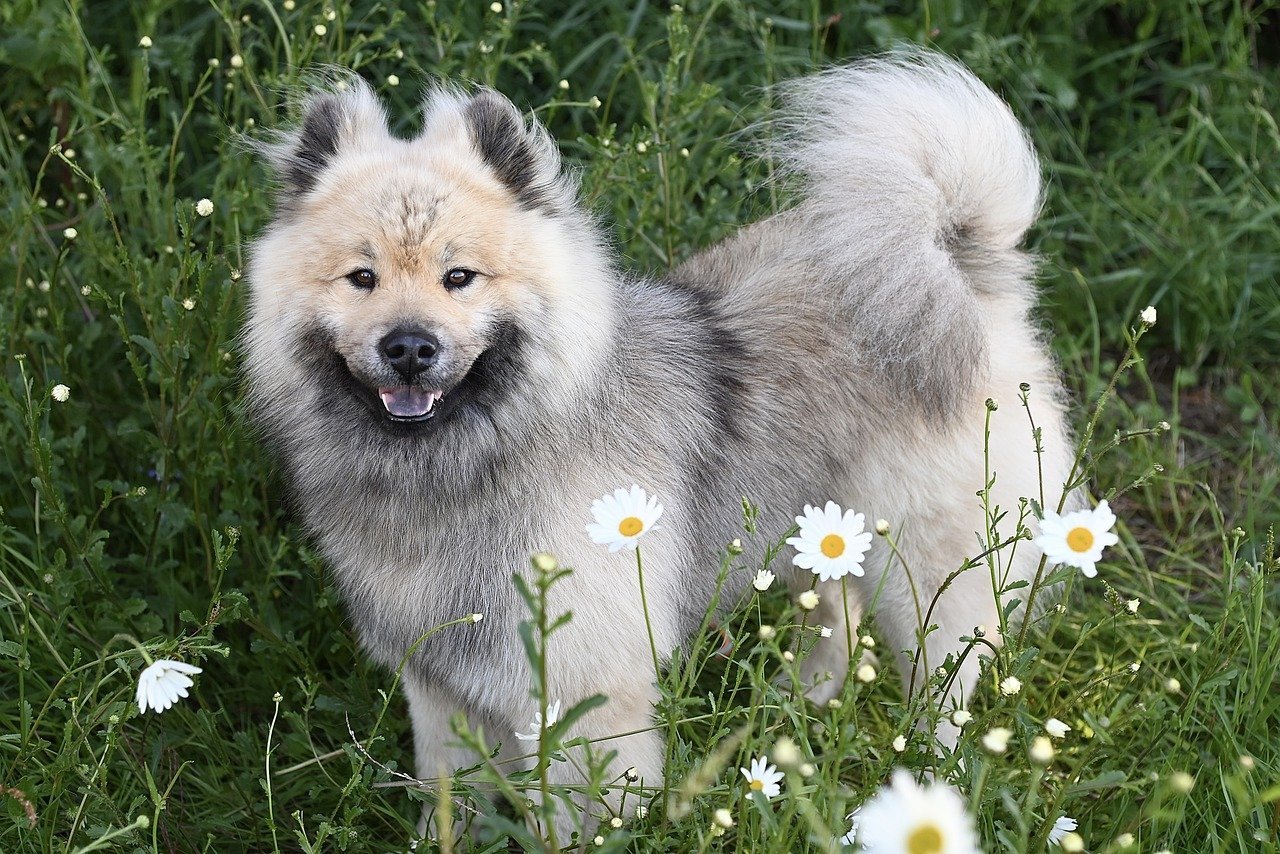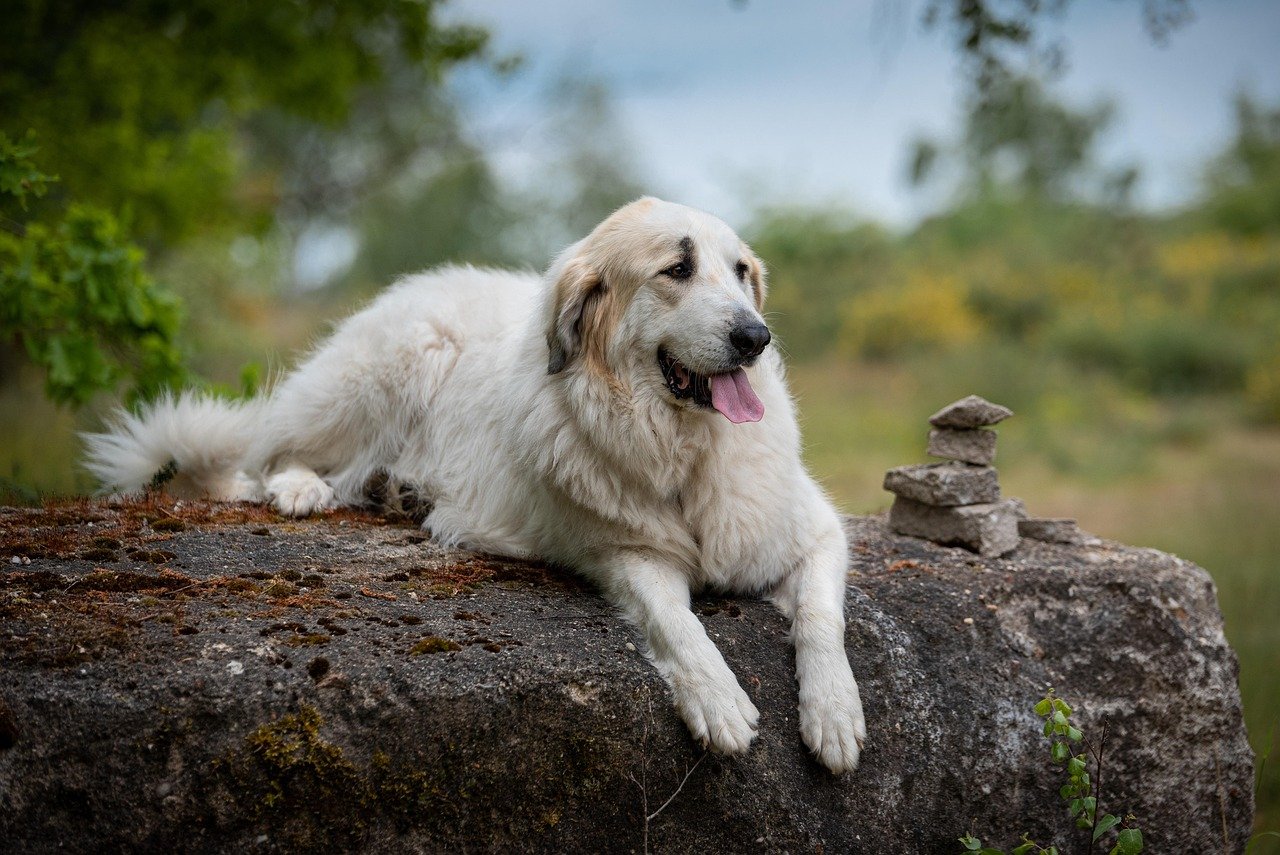Have you ever wondered why some dogs just seem to fit perfectly into your life, especially as you get older? Imagine coming home after a long day, greeted by a gentle wagging tail and loving eyes that seem to say, “I’ve been waiting for you.” Choosing a dog after 60 isn’t just about picking a pet—it’s about finding a true companion who brings joy, comfort, and laughter into your golden years. But what should you look for to make sure you find that perfect furry friend? Let’s dive into the 15 essential traits that truly matter.
Gentle Temperament

A gentle temperament can make all the difference, especially for those who want a calm and peaceful home. Dogs with a soft nature are less likely to jump up, nip, or bark excessively, making them safer for anyone who might be worried about balance or mobility. These dogs tend to be patient, even when things get a bit hectic or noisy. You’ll find that a gentle dog is also more likely to be understanding around grandchildren or visitors. Think of them as the steady heartbeat in your home—always there, always comforting. A dog with a calm demeanor can help lower stress and bring a wonderful sense of peace to your daily life. Imagine quiet evenings spent together—just you, your book, and a loyal friend resting at your feet.
Low Energy Level
Let’s face it, most of us aren’t running marathons after 60! Dogs that are content with short walks and plenty of naps are the ideal match for a more relaxed lifestyle. High-energy breeds can be exhausting and may lead to frustration if their needs aren’t met. Instead, look for a dog who loves lazy afternoons, gentle strolls in the park, and curling up on the couch. Low-energy dogs are happy to be by your side without demanding constant activity. They’re like that perfect friend who just “gets” you: content to do nothing and enjoy every moment. This makes daily life easier, safer, and far more enjoyable.
Easy Trainability

A trainable dog brings a sense of accomplishment and peace of mind. You don’t want to spend months struggling with basic commands or worrying about accidents inside the house. Dogs that respond quickly to training—and enjoy learning—are easier to manage and safer to have around. Simple things like coming when called or sitting patiently can make outings and daily routines smoother. Positive reinforcement works wonders, especially with breeds known for their intelligence and eagerness to please. Imagine how proud you’ll feel showing off your well-mannered companion to friends and family. Training isn’t just about obedience—it’s about building a bond based on trust and respect.
Affectionate Nature
Nothing beats the unconditional love of a dog. Some breeds are especially affectionate, always ready to cuddle or offer a warm nuzzle when you need it most. These dogs provide a deep emotional connection, staving off loneliness and lifting your spirits on tough days. They’re the ones who will rest their head on your lap or follow you from room to room, just to be close. Affectionate dogs are especially comforting for those living alone or far from family. Their love is genuine and never-ending, making every day a little brighter. It’s like having a living, breathing heart-shaped pillow by your side.
Small or Medium Size

Size matters, especially as we age. A smaller or medium-sized dog is much easier to handle—no pulling on the leash, no heavy lifting into the car, no worries about being knocked over during play. These dogs are often more adaptable to apartment living or houses with limited yard space. They’re easy to pick up for vet visits or grooming, and they fit perfectly in your lap or beside you on the sofa. Smaller breeds also tend to have longer lifespans, which can mean more years of companionship. Think of them as the perfect little sidekick—always ready to join you on life’s adventures.
Good Health and Longevity
Health is a top priority for anyone choosing a new dog companion, especially after 60. Some breeds are prone to fewer health problems and tend to live longer, healthier lives. It’s important to consider a dog’s potential medical needs, as frequent vet visits or costly treatments can be stressful and expensive. Look for breeds with a strong reputation for good health and resilience. This means fewer worries and more happy moments together. Choosing a healthy dog is a bit like investing in a reliable car—it keeps running smoothly and doesn’t let you down when you need it most.
Low Grooming Needs

Not everyone wants to spend hours brushing, bathing, or trimming their dog. Dogs with short coats or minimal shedding are a blessing for those who prefer simplicity. Low-maintenance grooming saves time, money, and effort, and helps keep your home cleaner. Some breeds hardly shed at all, making them a great option for those with allergies or sensitivity to pet hair. Imagine fewer messes, less time spent cleaning, and more time for fun. A dog that’s easy to care for feels like a breath of fresh air—always neat, tidy, and ready for a cuddle at a moment’s notice.
Social and Friendly Disposition
A sociable dog makes every outing a joy. Whether it’s walking in the neighborhood, visiting friends, or meeting new people at the park, a friendly dog opens up new social opportunities. They help break the ice and spark conversations, leading to new friendships and a stronger sense of community. Friendly dogs are also more adaptable when guests visit, reducing stress and making family gatherings more enjoyable. They’re like your personal ambassador, always ready to greet with a wag and a smile. Having a social dog can turn even an ordinary day into something special.
Adaptability
Life after 60 can bring unexpected changes—downsizing, moving, or sudden health issues. A dog that adapts easily to new environments, schedules, or routines is a huge asset. Flexible dogs adjust quickly to new homes, travel plans, or a sudden change in daily activity. They’re resilient and take life as it comes, which can be incredibly reassuring. Imagine a companion who’s happy whether you’re in the city, the countryside, or anywhere in between. Adaptable dogs help make transitions smoother and keep life’s surprises from becoming overwhelming.
Low Barking Tendency

Peace and quiet become more valuable with age. Dogs that bark excessively can disrupt sleep, annoy neighbors, and cause unnecessary stress. Look for breeds or individual dogs known for being quiet and calm. Low-barking dogs are perfect for apartment living or close-knit communities where noise can be an issue. They communicate when necessary but won’t wake you up at all hours. It’s like having a considerate roommate who knows when to keep things down. Enjoy the serenity of your home without constant interruptions.
Compatibility With Other Pets
Many people over 60 already have another pet or might be considering adding more to their family. A dog that gets along well with other animals makes the transition smoother and prevents stress for everyone involved. Dogs with a history of living peacefully alongside cats, birds, or other dogs are less likely to cause trouble. This trait is especially important in multi-pet households, where harmony is essential. Think of it as creating your own peaceful animal kingdom, where everyone gets along and life is simply sweeter.
Strong Bonding Ability
The best dogs are those who truly connect with their owners. A dog that forms a deep, lasting bond will always be by your side, through thick and thin. This trait brings comfort during life’s challenges and makes joyful moments even brighter. Dogs with strong bonding instincts are sensitive to your moods and needs, often offering support without being asked. It’s not just about loyalty—it’s about genuine friendship and understanding. These dogs become more than pets; they become family in every sense of the word.
Manageable Exercise Requirements
Physical activity is important, but it should be enjoyable, not exhausting. Dogs that need only moderate exercise—like daily walks or gentle play—are just right for most older adults. This keeps both you and your dog healthy without overwhelming either of you. Exercise becomes a pleasant routine rather than a chore, and it’s easy to fit into your daily schedule. Dogs with manageable exercise needs encourage you to stay active but never push you too far. It’s the perfect balance—enough energy to keep you moving, but not so much that you feel worn out.
Intuitive and Empathetic Nature
Some dogs almost seem to read your mind—they just know when you’re feeling happy, sad, or unwell. Empathetic dogs are natural comforters, offering a paw, a lick, or a gentle cuddle exactly when you need it. Their intuition creates a special bond, making you feel understood and cared for in ways that words can’t express. For those who may be dealing with health challenges, loneliness, or grief, an empathetic dog is like a silent therapist. They sense your emotions and respond with pure, unwavering love. Sometimes, it’s the quiet support that makes all the difference.
Predictable Behavior
Consistency is comforting, especially as we age. Dogs that behave in a predictable way—calm in new situations, steady around strangers, and reliable during routines—bring a sense of safety and stability. You know what to expect, which helps reduce anxiety and makes daily life more relaxed. Predictable dogs are easier to manage, making outings, vet visits, or travel much less stressful. It’s like having a trusty old friend who’s seen it all and never lets you down.
Finding the perfect dog companion after 60 is about more than just breed—it’s about personality, compatibility, and lifestyle. The 15 traits we’ve highlighted, from gentle temperament to manageable energy levels, help ensure that your canine friend enhances your daily life with companionship, comfort, and joy. Whether you’re seeking a walking partner, a loyal listener, or simply a furry presence by your side, the right dog can bring renewed purpose and deep emotional connection. With thoughtful consideration, your next chapter can be filled with unconditional love, shared routines, and the steady companionship only a devoted dog can provide.





